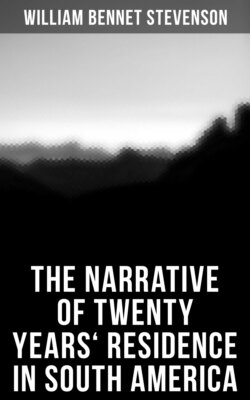Читать книгу The Narrative of Twenty Years' Residence in South America - William Bennet Stevenson - Страница 20
На сайте Литреса книга снята с продажи.
ОглавлениеAccording to the original terms of the bulls, no person could reap the benefit unless he were actually serving in the war; afterwards he might procure a substitute and remain secure at home; but now he can enjoy the blessings of peace at a much cheaper rate. The bulls sold in South America were, the general bull for the living, or of the holy crusade; the bull of lacticinios, milk food; of composicion, accommodation; and the bull for the dead.
The general bull for the living retained its virtue in the hands of its possessor for two years, at which period it expired, but the benefit might be renewed by purchasing another. The advantages derived from the possession of this bull included generally all those of the other three though not in so direct a manner; having this, no cases were reserved for papal absolution; all kinds of vows might be released, excepting those which would contribute more to the church by their fulfilment; blasphemy was forgiven; any thing except flesh meat might be eaten on fast days; and one day of fasting, one prayer repeated, or one good deed done, was equal to fifteen times fifteen forties of fast days, prayers, or good deeds done by the unlucky being who had not purchased this bull. Nay more—the buying of two bulls conveyed to the purchaser a double portion of privileges. The price of this precious paper varied according to the rank of the sinful purchaser: a viceroy, captain-general of a province, lieutenant-general of the army and their wives paid fifteen dollars for each bull; archbishops, bishops, inquisitors, canons, dukes, marquises, and all noblemen, also magistrates and many others, five dollars each; every individual who was in possession of property to the amount of 6000 dollars, paid one dollar and a half for his bull; and all persons under this class enjoyed all the privileges conceded to the rich and powerful, for two and a half reals, or five sixteenths, of a dollar each.
The bull of lacticinios, or milk food, was issued for the benefit of the clergy, they not being allowed by the general bull to eat such dainties on fast days; but as the result did not answer the expectations of the crown the commissary-general recommended the laity to purchase it for the prevention of conscientious scruples. Archbishops, bishops, and conventual prelates paid six; canons, dignitaries and inquisitors, paid three; rectors and curates one and a half, and all other secular priests one dollar for each bull. A celebrated Spanish writer, speaking of this bull, says, "the holy father has only allowed them these dainties when they can be procured, another bull is wanting to eat them at all events, but for this purpose the bull of composicion may be made to answer."
This bull of composition, or accommodation, is monstrous; for it gives to the possessor of stolen property a quiet conscience and absolute possession, on condition that he has stolen it evading the punishment applicable by law; that he knows not the person whom he has robbed or defrauded, and that the knowledge of this accommodating bull did not induce him to commit the theft. Thus this papal pardon by accommodation or agreement insures to a lawless villain a quiet possession of property, the means of acquiring which ought to have been rewarded by the hangman! The possessor of the unlawfully acquired property fixed a value on it, and purchased bulls to the amount of six per cent. on the principal. Only fifty bulls could be purchased in one year by one individual, but if he required more, he applied to the commissary-general, whose indulgence might be purchased.
The bull for the dead was a kind of safe conduct to paradise—the masonic sign to Saint Peter for admission there, or a discharge from purgatory, if the soul of the deceased had reached this place before the bull was purchased, or if by some mishap the name of the individual had not been written on it, or had been wrongly spelled. How unfortunate must those pious Christians have been who lived, or rather who died at a great distance from the bull vender, or who had not the means of purchasing this pontifical passport; for every person must have one, the article not being transferable, because this would injure the market; but any person was allowed to purchase more than one and at any period after the death of the person he wished to befriend, as its powerful influence might be extended to the general benefit and alleviation of souls in purgatory. Thus it is that piety when accompanied with money has wonderful powers! All persons included among the first class of purchasers of the general bull paid six eighths of a dollar, six reals, for one for the dead, if he belonged to this class, but if he were of the fourth it only cost two reals, two eighths of a dollar.
I shall not pretend to give an estimate of the sum produced by the taxes, the jealousy of the Spaniards towards a foreigner being so great that it would have been dangerous for me even to have inquired. The two following items I obtained by chance:
| DOLLARS. | ||
| The Custom House of Lima received | in 1805 | 1592837–2½ |
| Ditto | in 1810 | 1640324–4 |
| Produce of bulls in the Commissary's} | ||
| office for the Viceroyalty of Peru} | in 1805 | 91021 |
| Ditto | in 1810 | 97340–2 |
